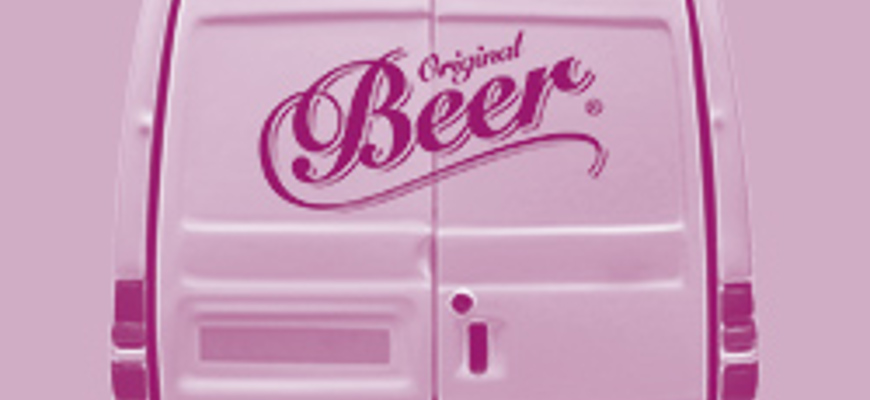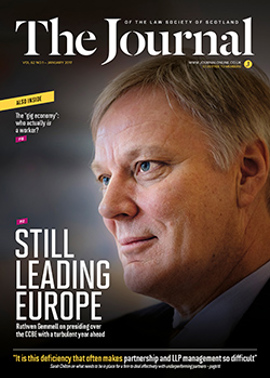Delivery of alcohol: a “game changer”?

Delivery of alcohol from vehicles is not new. It is fairly clearly controlled by ss 119 and 120 of the 2005 Act. A decade ago it was relatively uncommon in practice. When asked to make such an application, usually for someone who delivered pizza or the like, I fear for the client, and advise accordingly. The possibilities for abuse are huge. Mum and Dad are out: kids phone up for a delivery of pizza and beer, and get the oldest looking one to answer the door.
Then the big boys got in on the Act. Supermarket vans delivering online shopping are as common on our streets as milk floats used to be. What has caused much fluttering in the doocot is a pair of applications made by the world’s biggest online distribution company, which takes its name from a South American river. In the month of December two provisional licence applications were granted, one by Inverclyde Licensing Board, the latter (by a 5-4 vote) by Fife.
State of the law
Of that, more shortly. It might be useful to refresh the memory on the state of the law. The sale will be deemed to have taken place at the premises from which the alcohol is despatched (s 139). The alcohol may not be delivered between the hours of 12 midnight and 6am. The sale itself (i.e. the acceptance of the order) must take place within the licensed hours, which will normally be between 10am and 10pm. The usual rules apply about sales to children and young persons, drunk persons etc.
Section 119 provides that before the alcohol is despatched, there must be (a) in the premises from which the alcohol is despatched a “day book” (I think the term was antiquated even in 2005), and (b) in the delivery vehicle a delivery book or invoice. These must both specify (a) the quantity, description and price of the alcohol, and (b) the name and address of the person to whom it is to be delivered. This, fairly obviously, is to prevent alcohol being sold in the style of an ice cream van (stop me and pop one). It is an offence to deliver the alcohol to an address not entered in the documentation, so you cannot leave it with a neighbour. It does not appear to be an offence to deliver to a person who is not named, so wee Johnny can use Mum’s online account.
Cause for concern?
What has caused such consternation about the recent applications relates in part to the delivery style. Supermarkets, so the argument goes, use their own employees. They can thus ensure that there is proper training and exercise better control. The online people use private contractors who are self-employed. A recent TV programme highlighted the time pressures these people are under, and the significant expense and loss of bonuses which can apply if goods have to be returned to the depot. There is concern that these drivers will be tempted to bend the rules.
Another concern surrounds the new one hour delivery scheme which is being introduced. If you have to go into a shop and order alcohol, there is a much better chance of the seller detecting the fact that you are under the influence and to refuse the sale. The health lobby are concerned as well. They believe that if they repeat often enough their mantra that the more outlets, the more people consume, the world will recognise this as a truism. All of the research which I have read states (usually tucked away in the small print) that there is insufficient evidence for a causal connection to be established. A few years ago I listened to a scientist speaking at an AFS conference (the like of which I would now be excluded from because I represent sellers of alcohol). He came out with the same conclusions, then very quietly at the end let slip that his conclusions would not hold good in an urban setting!
The objectors describe these new licence applications as a “game changer”. Is that in fact correct? First of all, Amazon has been doing this in England for a while. I am not aware of any issues which have arisen there. Secondly, as Archie Maciver pointed out at the recent SLLP conference, they could be delivering in Scotland from a depot in England. Is it not better for that transaction to be licensed here, where Scottish checks and balances could apply? Might delivery drivers break the law? Yes, but so might any licensee. I fear that the genie has been out of the bottle for a good while now. I do hope that the powers that be monitor the situation closely, and the boards will not be slow to take robust action if the objectors’ fears prove to have substance.
In this issue
- Private prosecution: the Glasgow Rape Case revisited
- The commercialisation of space
- Feminism: all is not what it seems…
- Retaking the narrative on complaints
- Reading for pleasure
- Opinion: Alan McIntosh
- Book reviews
- Profile
- President's column
- RoS riding to the four (hundred)
- People on the move
- Scot in the European hot seat
- When partners fall short
- Uber: a great gig?
- Brexit: the end of cross-border practice?
- Closing in: the gender pay gap rules
- Simple procedure – it's complicated
- When changing the defender is OK
- Solemn procedure: beware the changes
- Divorce and the new state pension
- Delivery of alcohol: a “game changer”?
- A tale of two "Budgets"
- Scottish Solicitors' Discipline Tribunal
- "One-shot" rule sees rejection income soar
- Law without frontiers
- CJEU decision supports LPP protections
- Society thank-you for STARTS support
- From the Brussels Office
- Law reform roundup
- Expertise plus: promoting a sector strength
- Paralegal pointers
- What to do about client interest?
- Still free to market?
- New year, new contact
- Ask Ash
- Paying homage to King Cash






